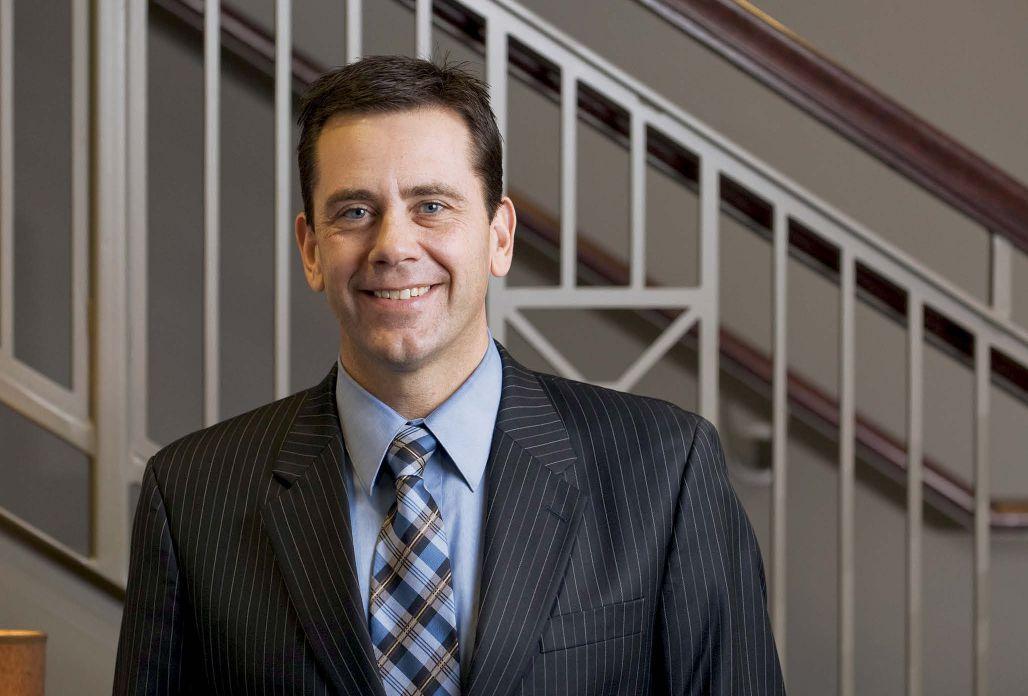
2 minute read
Auditing an Industry
BY KAYLA PRASEK
WWhen Darrell Lingle started attending Augustana College, which is now Augustana University, in Sioux Falls, S.D., he planned on majoring in chemistry and eventually becoming an optometrist. Once he realized he didn’t like chemistry and enjoyed his introduction to accounting class, he quickly changed lanes.
Lingle, an audit partner with certified public accounting and business advisory firm Eide Bailly in Bismarck, N.D., graduated from Augustana with a Bachelor of Arts in Business Administration and Accounting. He then worked at an accounting firm in Pierre, S.D., for two years before landing at what was then Eide Helmeke in Bismarck, where he’s been since 1991. Lingle started in tax services before transitioning to audit services, eventually working only with financial institutions. He became a partner in the firm in 2004 and has been audit practice leader for seven years.
“I decided I wanted to focus on public accounting because I liked the diversity and my career naturally led to working with financial institutions,” Lingle says. “It’s a clean industry with people who are good at their jobs so I don’t have to go in and clean up messes. We get satisfaction from helping out our clients and being a trusted adviser and business partner to them.”
Lingle notes several highlights during his 25-year career with Eide Bailly. “As a young accountant, it was passing the CPA. After that, each time you’re able to advance and be promoted is always a milestone. When I was approved to be a partner, it felt like a huge achievement.”
As for challenges in his career, Lingle says “every day there’s something new with regulatory practices, so we’re always working to help community banks get through their challenges. On top of that, we’re always working on implementing any new standards from the accounting board.”
Lingle has seen the financial industry change over the course of his 25-year career. With that, he says the regulatory burden facing financial institutions is “one of the most significant changes in the past 25 years. It seems that there’s more and more regulations every day.”
Cybersecurity risks also change continuously and have grown significantly during Lingle’s career, thanks to a reliance on information technology. “It seems it changes every day,” Lingle says. “We’re doing whatever we can do to help our clients.”
Both regulatory burdens and cybersecurity continue to be challenges facing the financial industry nationwide, but Lingle is also seeing challenges regionally. Across North Dakota, Lingle predicts banks will face questions of asset quality, with both the agriculture and oil industries suffering heavy setbacks recently. “Our financial institutions have a lot of risk policies in place to protect themselves in these situations, but asset quality will come into question.”
Smaller community banks are facing the struggle of being able to attract talent, especially in key positions, and a succession plan issue, Lingle says.
But, even with the challenges, Lingle says the banks are doing well. “We’ve had a strong economy in the Dakotas and Minnesota, even with the challenges of 2008, ag and oil. Our banks are smart and risk-averse and have come out of all of this well.”
Lingle encourages those in the financial industry to “surround yourself with smart people. There are a lot of resources out there. Those organizations are there to provide a network. Take advantage of the network you can build and take advantage of educational opportunities. Allow your staff to build and grow, as they will be valuable as you face challenges. And when you face challenges, someone else in your network has probably already faced it.” PB
Kayla Prasek Staff
Prairie Business 701.780.1187
kprasek@prairiebusinessmagazine.com











